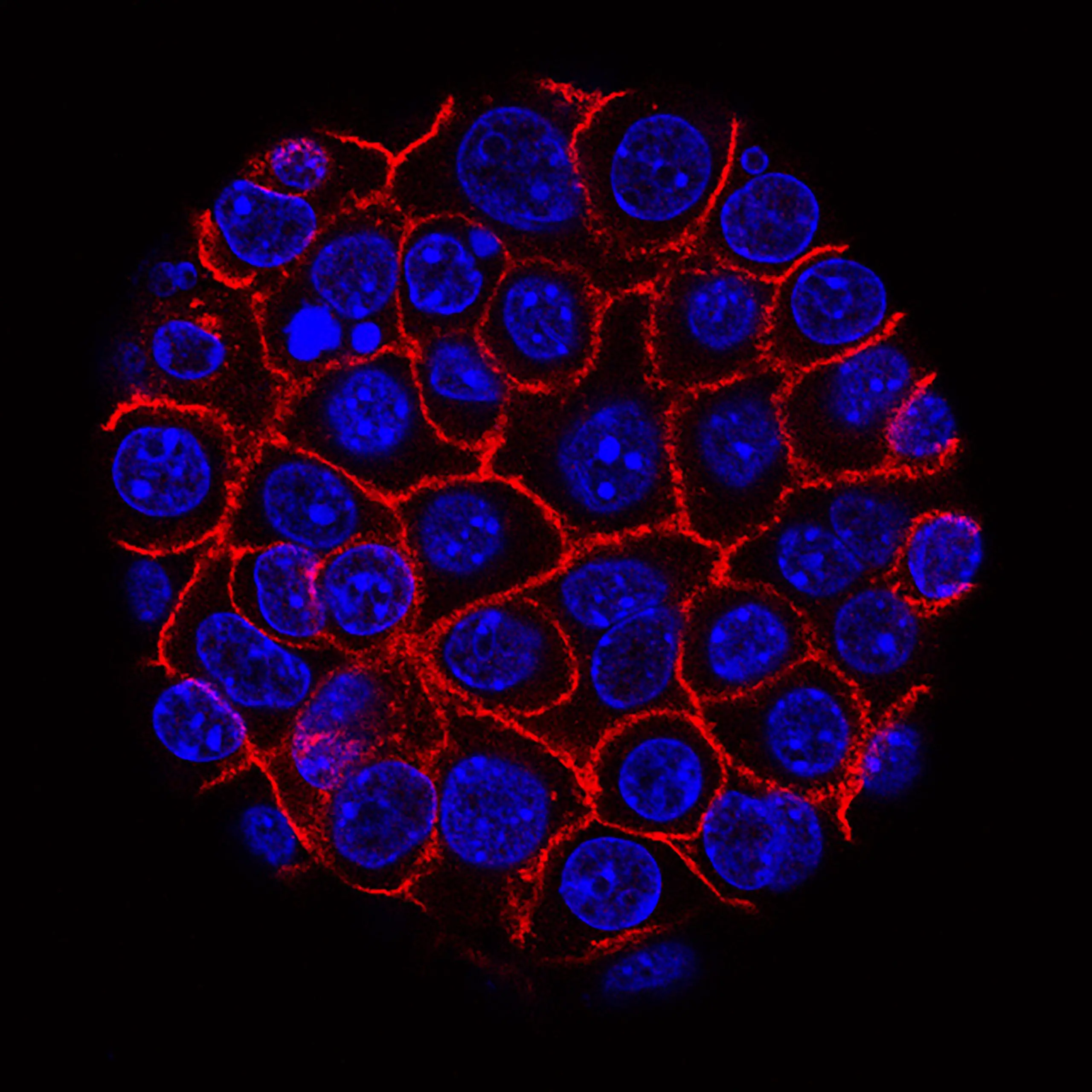Summary of Researchers Reveal How Pancreatic Cancer Defies Treatment:
This study conducted by an international team of scientists, led by researchers at the University of California San Diego School of Medicine and the Sanford Consortium for Regenerative Medicine, has uncovered how pancreatic cancer stem cells use a protein from a family of proteins that usually suppresses tumors to instead enhance their resistance to standard treatments and promote growth. The researchers found that the protein SMARCD3 helps control lipid and fatty acid metabolism, which are associated with therapy resistance and poor prognosis in cancer, and that deleting SMARCD3 in models of pancreatic cancer reduced the growth of tumors and improved survival, making SMARCD3 an exciting new target for potential therapies.
*****
Uncovering How Pancreatic Cancer Cells Evade Treatment

Pancreatic cancer cells (nuclei in blue) are shown growing as a sphere encased in membranes (red). Credit: National Cancer Institute
UC San Diego researchers have uncovered how pancreatic cancer stem cells use a protein from a family of proteins that typically suppresses tumors to instead enhance their resistance to standard treatments and promote growth.
Pancreatic cancer is a highly deadly form of cancer, ranking third in the United States after lung and colorectal cancer, albeit less prevalent. It is also one of the most challenging cancers to effectively treat, with pancreatic cancer stem cells rapidly developing resistance to both conventional and targeted treatments like chemotherapy and immunotherapies. Consequently, the 5-year survival rate for individuals diagnosed with pancreatic cancer is a mere 10%.
A New Mechanism of Resistance
An international team of scientists, led by researchers at the University of California San Diego School of Medicine and the Sanford Consortium for Regenerative Medicine, has uncovered another mechanism by which the most resistant pancreatic cancer cells evade treatment. In a new study published in Read the Source Here


